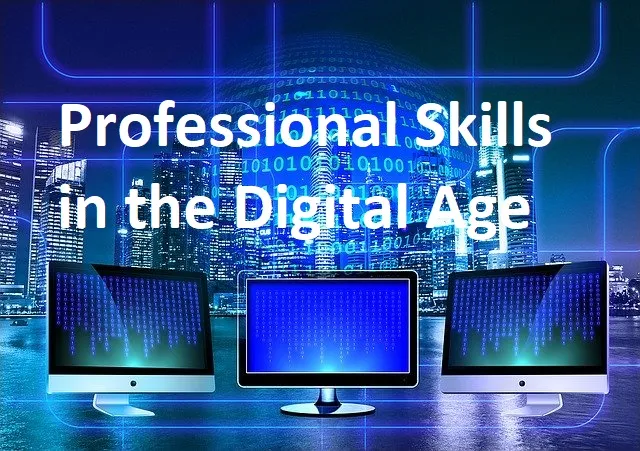1. Introduction to Educational Technology Jobs
The term “educational technology” refers to the integration of technology into the educational process to improve learning outcomes. As classrooms, universities, and corporate training programs increasingly rely on digital platforms, the need for tech-savvy professionals is growing.
But what exactly are educational technology jobs? They cover a wide range of positions, from software developers creating learning apps to educators who specialize in virtual teaching. These jobs bridge the gap between education and technology, combining instructional knowledge with digital tools.
2. Why Educational Technology Is in Demand
The COVID-19 pandemic significantly accelerated the use of digital platforms in education. Schools and universities were forced to pivot to online learning almost overnight. This shift highlighted the importance of educational technology and the professionals behind it.
Even beyond the pandemic, educational institutions are continuing to invest in digital tools. The demand for educational technology experts is only expected to grow as more schools adopt blended learning models that combine traditional in-class instruction with online elements.
3. Key Skills for Success in Educational Technology
What does it take to succeed in this rapidly growing field? Here are some essential skills:
- Technical Proficiency: From coding to understanding software, tech skills are crucial.
- Pedagogical Knowledge: Understanding how students learn helps in designing effective digital tools.
- Communication: Explaining complex tech solutions to non-tech users is often part of the job.
- Problem-Solving: Many educational tech roles require quick thinking to solve tech issues in real time.
Whether you’re designing apps or managing a learning platform, these skills will help you excel in educational technology jobs.
4. Top Educational Technology Jobs in 2024
If you’re considering a career in educational technology, there are numerous roles to explore:
- Instructional Designer
- LMS Administrator
- Educational Consultant
- eLearning Developer
- EdTech Trainer
Each of these positions plays a critical role in shaping the future of education, making it an exciting time to enter the field.
5. Instructional Designer: A Core EdTech Role
Instructional designers are responsible for creating engaging, effective learning experiences. Whether it’s a corporate training program or a university course, instructional designers use principles of pedagogy, instructional theory, and technology to develop learning materials.
Think of an instructional designer as an architect. Just as an architect designs blueprints for buildings, instructional designers create “blueprints” for lessons and courses. This role requires creativity, collaboration with subject matter experts, and a deep understanding of how technology can enhance learning.
6. LMS Administrator: The Tech Behind Online Learning
Learning Management Systems (LMS) are the backbone of digital learning environments. An LMS administrator manages the platform, ensuring that courses are uploaded correctly, students can access materials, and the system runs smoothly.
If you’re someone who enjoys tech but also values education, this role could be the perfect blend of both. LMS administrators often troubleshoot technical problems, update software, and train users on how to navigate the system.
7. Educational Consultant: Guiding Schools in Technology Integration
Educational consultants help schools and institutions make informed decisions about which technologies to adopt and how to use them effectively. This role combines technical expertise with educational experience, making it perfect for former teachers who are tech-savvy.
Consultants often work on a freelance basis or for educational service providers, guiding educators in making the best use of digital tools to improve learning outcomes.
8. eLearning Developer: Building Digital Learning Experiences
eLearning developers create interactive learning modules, simulations, and courses that can be used in online or hybrid learning environments. They often work with instructional designers to turn lesson plans into engaging digital content.
In a way, eLearning developers are the “craftsmen” of the digital learning world, responsible for turning abstract ideas into functional, interactive experiences. They need skills in multimedia, programming, and user experience design.
9. How to Start a Career in Educational Technology
Interested in starting a career in educational technology? Here are a few steps you can take:
- Education: A degree in education, instructional design, or a related tech field can be helpful.
- Certifications: Look into certifications like Google Educator or Blackboard LMS training.
- Portfolio: Showcase your skills by developing sample lessons, tutorials, or learning modules.
- Networking: Join EdTech communities and attend conferences to meet professionals in the field.
The educational technology industry values experience, so the more hands-on projects you can complete, the better.
10. Salary and Job Outlook in Educational Technology
Salaries in educational technology vary depending on the role and location, but many jobs offer competitive pay. Here’s a rough breakdown of salaries for different roles:
- Instructional Designer: $60,000 – $90,000
- LMS Administrator: $55,000 – $85,000
- eLearning Developer: $65,000 – $95,000
Job growth in educational technology is expected to remain strong as schools continue to integrate digital tools into classrooms.
11. Remote Work in Educational Technology: Is It Possible?
With the rise of online education, many educational technology roles can be performed remotely. Instructional designers, eLearning developers, and even LMS administrators often have the flexibility to work from home. This makes educational technology a promising field for those seeking a balance between career and personal life.
12. Educational Technology in K-12 vs Higher Education
Educational technology plays different roles in K-12 and higher education settings. In K-12, the focus is often on tools that facilitate collaboration, creativity, and personalized learning. In higher education, technology is used to support complex research projects, manage large online courses, and provide students with flexible learning options.
While the core skills for educational technology jobs remain the same, the application of those skills may vary depending on the educational level you work in.
13. The Future of Educational Technology Jobs
As technology continues to evolve, so will educational technology jobs. Artificial intelligence, augmented reality, and data analytics are just a few of the innovations shaping the future of this field. Professionals who stay ahead of these trends will find themselves in high demand.
The key to success in educational technology is adaptability. Those who are willing to learn new tools, experiment with emerging tech, and think creatively about how technology can improve education will thrive in this exciting industry.
14. Conclusion: Your Role in Shaping the Future of Learning
Educational technology jobs offer a fulfilling and dynamic career path for those passionate about education and technology. Whether you want to design courses, manage learning systems, or consult on tech adoption, there’s a role for you in this growing field. By staying adaptable and continuously developing your skills, you can help shape the future of education.



